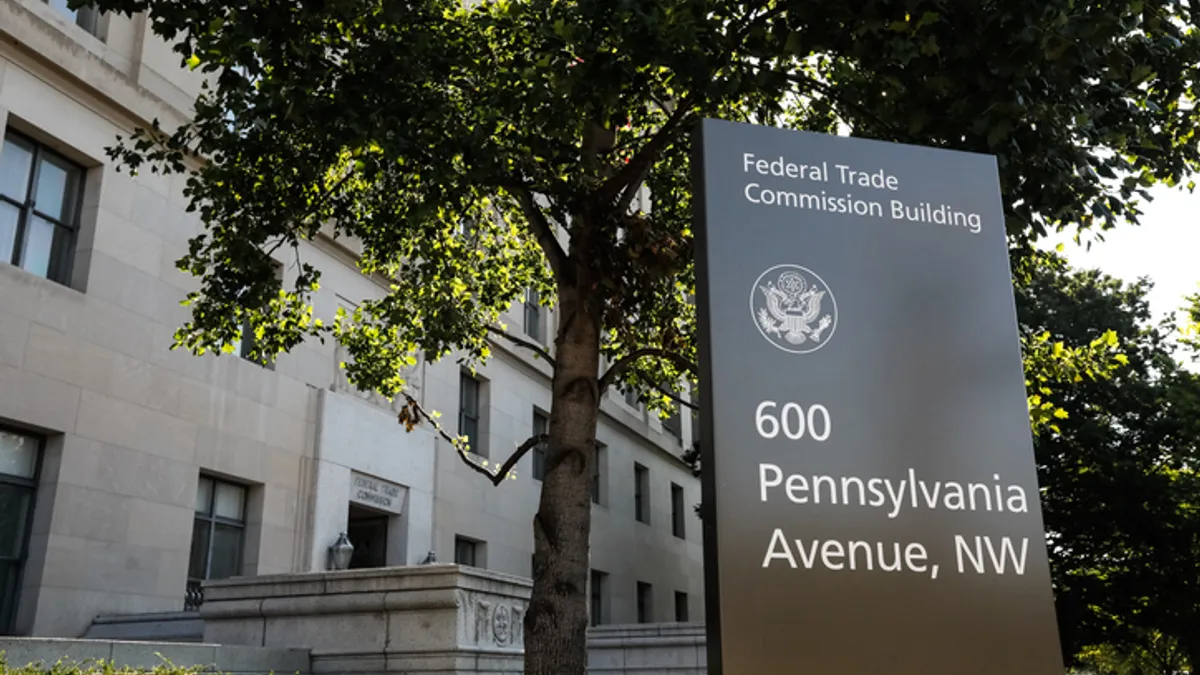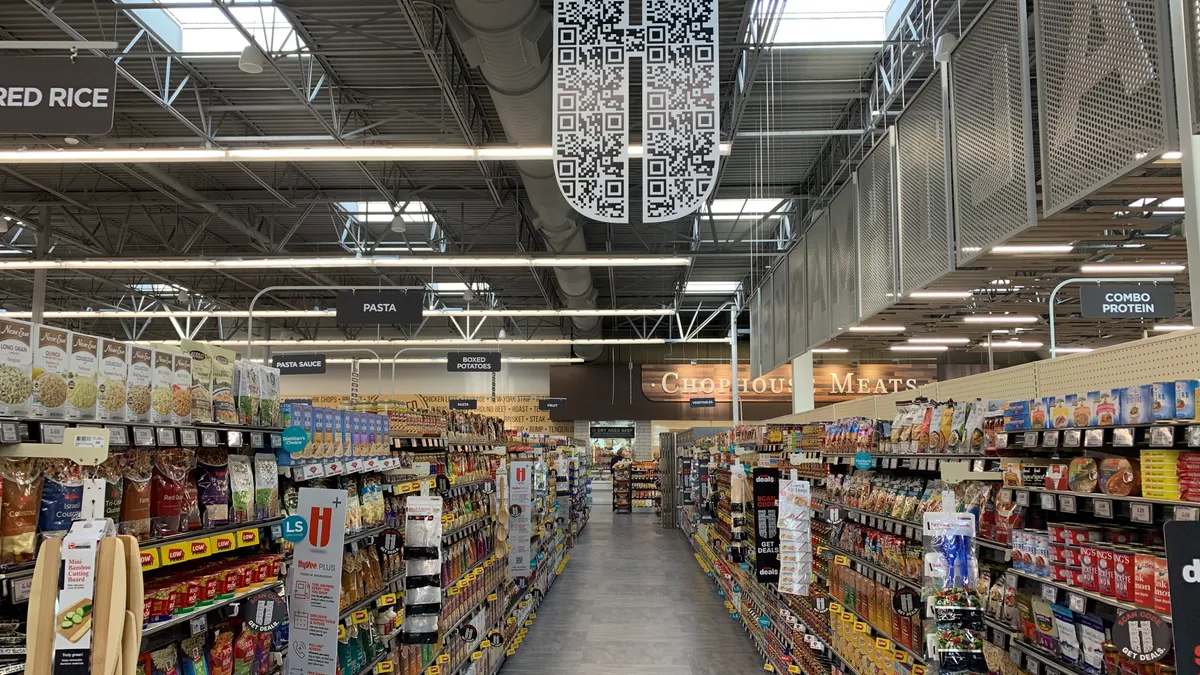With a new chair appointed by President Donald Trump now in place and a second Republican commissioner appointee awaiting Senate confirmation, the Federal Trade Commission is likely to be more receptive to deals between supermarket operators than it was under former President Joe Biden, according to antitrust experts.
Trump on Dec. 10 appointed Andrew Ferguson, who joined the FTC in April 2024, as chair. Ferguson, who replaced Biden-era chair Lina Khan and served most recently as solicitor general of Virginia, was nominated as a commissioner by Biden in July 2023 and confirmed by the Senate in early 2024. Ferguson does not need Senate approval to become chair of the FTC because he is already a member of the commission.
“Under your leadership, American businesses will become stronger and more competitive, and will better serve workers and consumers, than ever before,” Ferguson wrote in a Dec. 10 post on X thanking Trump for the appointment. “We will make sure that America is the world’s technological leader and the best place for innovators to bring new ideas to life.”
Trump has also nominated Mark Meador, a founding partner of law firm Kressin Meador Powers, to serve as an FTC commissioner. As of Tuesday, Khan remained on the commission, although not as chair, according to the agency’s website. She will need to vacate her position once Meador wins confirmation from lawmakers, Barron’s reported on Monday.
“My sense is that business is reading the Trump administration as being more favorable on mergers and acquisitions in general,” said Jeffery Cross, an antitrust attorney who is of counsel to the law firm of Smith, Gambrell & Russell. “These are traditional, Republican, conservative antitrust enforcers … and so you’ll see, I think, the application of traditional antitrust analysis.”
Arindam Kar, an antitrust attorney at law firm Polsinelli, said he expects the FTC to be more amenable under Ferguson to divestitures as a way to address concerns about a planned merger’s potential to reduce competition. That would represent a key change to the agency’s approach compared to the way it operated under Khan, when it took a dim view of Kroger and Albertsons’ proposal to sell hundreds of stores to C&S Wholesale Grocers in a bid to win approval for their ultimately unsuccessful merger plan.
Under Biden, the FTC and Department of Justice ”were very much of the position that divestitures don’t really work in maintaining the status quo,” Kar said. “I think that sort of tone and tenor is going to change, where both agencies are going to be much more receptive” to working with merger parties to help them close deals.
Kar added that while he expects traditional horizontal mergers to still receive careful scrutiny, he thinks the FTC will take a more cooperative approach to how it interacts with companies.
In addition, regulators could decide to revisit the stricter guidelines the FTC adopted in December 2023 along with the Justice Department and applied in evaluating corporate combinations such as the failed Kroger-Albertons deal, potentially lowering the barriers future grocery industry combinations would face in winning government approval, Cross said. If that were to happen, the FTC might choose to use principles the agencies issued in August 2010 that were in place throughout the first Trump administration, he said.
With the 2010 guidelines, the agencies increased the amount of concentration that would be necessary to trigger the presumption that a merger would be anticompetitive, Cross noted. In 2023, by contrast, the FTC and the Justice Department reduced the level of market concentration that could prompt regulators to deem a proposed merger anticompetitive and potentially cause them to attempt to block it.
Cross said that while the guidelines don’t have the force of law — and are therefore not binding on judges — most courts recognize that they were developed by antitrust experts and are therefore authoritative.
While the Trump administration is widely expected to be more friendly to corporate combinations than the previous administration, grocers should expect courts to pay close attention to how judges evaluated the agency’s challenge of the Kroger-Albertsons merger in the event regulators push back on future grocery industry mergers going forward, Cross said.
Regulators will likely make evaluating a merger’s potential to diminish competition in individual markets a top priority in deciding whether to mount a challenge, he added.
Cross said he thought the federal and state judges who granted requests by regulators to block the Kroger-Albertsons deal last year were thorough in their application of antitrust law, suggesting that future grocery transactions that wind up in the courts would face similar scrutiny, he said.
Spencer Waller, a professor at Loyola University Chicago School of Law who specializes in antitrust law, agreed that the change in administration is likely to make it easier for merger parties to make the case that selling off stores or other assets will assuage antitrust concerns.
“I think this past administration was more receptive — if they really thought there was a problem in any merger — to challenging the deal as a whole, rather than just accepting minor modifications and allowing it to go forward with some conditions,” Waller said.
Waller, who formerly served as a senior adviser to Khan, added that the pushback Kroger and Albertsons faced from state regulators underscores the role states are likely to play in determining if future grocery industry mergers go through. Nine state attorneys general joined the FTC’s case against the merger, while the attorneys general of Colorado and Washington state filed their own suits against the deal under state antitrust laws.
Grocery mergers are “inherently local [so] it’s exactly the kind of thing you’d want a state law enforcement person to care about,” Waller said.
The FTC’s limited staff and other resources play a factor in how the agency decides whether to challenge a transaction, Waller added.
“All chairs have hard decisions to make about where to put their resources,” Waller said about Ferguson. “There are only so many bodies to go around, and that’s just the reality.”





















